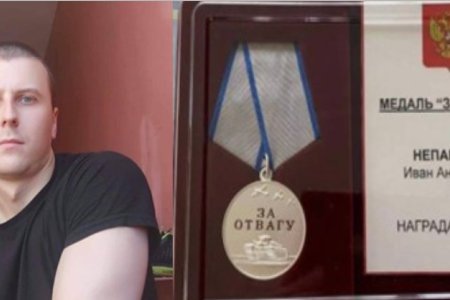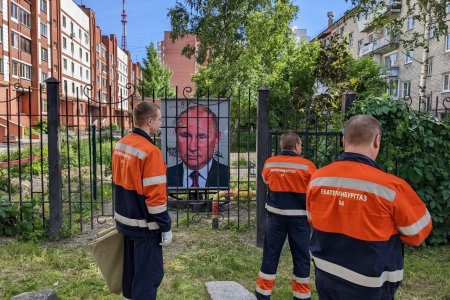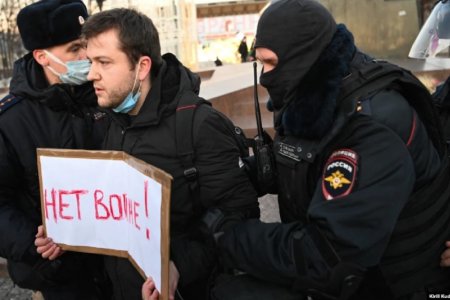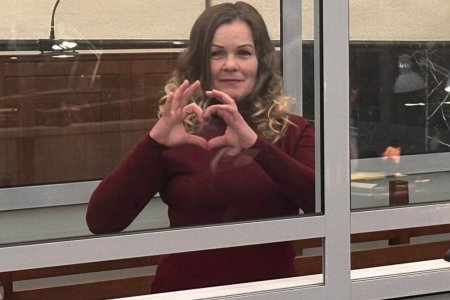
Sanctions against Russia do target the regime of Vladimir Putin and all measures that hinder the growth of Russia’s economy are imperative for saving Ukraine. This was the message on 5 August from Nariman Dzhelyal, Crimean Tatar Mejlis leader, renowned journalist, human rights defender and, until recently, Russia’s most prominent Ukrainian political prisoner.
Dzhelyal and Tamila Tasheva, Ukraine’s Presidential Representative on Crimea were meeting with Katrin Göring-Eckardt, Vice-President of the German Bundestag, just days after Russia exchanged 16 of its most prominent Russian political prisoners for Russian state assassin and FSB operative Vadim Krasikov, cyber criminals and spies. Many of the political prisoners, including Vladimir Kara-Murza and Ilya Yashin, had been imprisoned because of their opposition to Russia’s war of aggression against Ukraine. Dzhelyal was, therefore, by no means alone in feeling immense frustration when Kara-Murza (as well as Andrei Pivovarov) used their first press interview to oppose sanctions imposed over Russia’s aggression against Ukraine. Kara-Murza claimed that these were “unfair” because they hit ordinary people, “not criminals and Putin’s regime”. Yashin in his turn suggested that Ukraine sit down at the negotiating table with Russia, because the situation has reached “a dead end. People are dying on both sides.” Yashin did not appear to notice any distinction between the “losses” undoubtedly among Russian fighters which the FSB and guards had acknowledged and the daily carnage in Ukraine from Russian bombs targeting civilians. Nor, at least in that interview, did he mention the fact that the Russians are dying on another country’s territory which they have invaded.
Both Kara-Murza and Yashin were, seemingly, disturbed by the anger this provoked and reiterated their support for Ukraine, however it was the initial calls to weaken sanctions and to “negotiate” with an aggressor occupying 20% of Ukrainian territory and openly demanding more territory that gained wide publicity.
Kara-Murza’s promise to devote his activities to “reminding people in democratic countries that Russia and Putin are not one and the same” and that sanctions should be directed against the regime not ordinary citizens “on the grounds of nationality” is also problematical. While undoubtedly bearing a major degree of responsibility, Putin did not commit the atrocities perpetrated in Bucha, Izium, Mariupol and other Ukrainian cities. It is not Putin himself who is dropping bombs on hospitals and residential buildings in Ukraine, nor who is boasting on Russian propaganda television of such crimes. Those ‘judges’, prosecutors, enforcement officers and other functionaries passing huge sentences against Crimean Tatar and other Ukrainian political prisoners, as well as against those who oppose the war, are not facing execution if they refuse to be complicit.
In commenting that it would be “a huge mistake” to ease sanctions against Russia, Dzhelyal noted that these sanctions do, first and foremost, hit the Putin regime, with the influence of sanctions “on ordinary Russians” not so serious as to warrant calling for their easing.
It is, frankly, difficult to understand what Kara-Murza even had in mind. Ukrainians are facing the real threat of a winter without heating and electricity because of Russia’s systematic bombing of Ukrainian energy infrastructure. Millions have been forced to flee, leaving everything behind, or have seen their homes destroyed. Yet a mere glance at public surveys carried out by the usually reliable Levada Centre shows that a huge percentage of Russians scarcely pay attention to what their country is doing to Ukraine. While the percentages of “ordinary Russians” willing to express opposition to the war may be distorted by fear of persecution, the level of ‘general interest’ seems likely to be realistic. While the war doesn’t affect their lives as “ordinary Russians”, it is far easier to look away, a luxury very many Russians serving the current Russian regime are denying Ukrainians.
Nariman Dzhelyal was one of ten Ukrainians released by Russia in an exchange of prisoners on 28 June 2024. The two other Crimean Tatars – civic journalist Asan Akhtemov and his cousin, Aziz Akhtemov – remain imprisoned, although their arrest, the torture they endured and their huge sentences were manifestly linked with Russia’s revenge attack upon Nariman Dzhelyal. Since his first interview, Nariman has spoken out for the need for efforts and mechanisms to force Russia to release them and the huge number of other Ukrainian political prisoners and civilian hostages.



